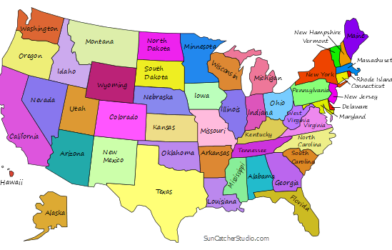Knowing if banks open today is important because it helps you plan your day and manage your finances more effectively. If you have tasks like depositing a check, withdrawing cash, or paying a bill, being aware of the bank’s schedule ensures you can complete these tasks without any last-minute problems. It saves you time and effort by allowing you to avoid unnecessary trips to the bank when it is closed.
For example, if you need to make a payment or handle a financial issue by the end of the day, knowing the bank’s hours helps you plan your visit so you can get everything done on time. Additionally, understanding if the bank is open helps you avoid frustration and delays that can arise from discovering the bank is closed when you need it to be open. Overall, being informed about the bank’s hours is a key part of staying on top of your financial responsibilities and ensuring that you can manage your tasks smoothly
What Are the Typical Business Hours for Banks?
Most banks are open Monday to Friday from around 9:00 AM to 5:00 PM. Some branches may extend their hours, staying open until 6:00 PM or even 7:00 PM to accommodate customers who need to visit after regular working hours. On Saturdays, banks usually have shorter hours, often opening from 9:00 AM to 1:00 PM, to give people a chance to do their banking on the weekend. However, these hours can vary widely depending on the bank and its specific location. Some banks in busy areas might stay open longer, while smaller or more rural branches might close earlier. Because of these differences, it’s always a good idea to check the hours for your specific bank branch by looking online, calling the branch, or checking the information in your bank’s mobile app. This way, you can be sure of their schedule and plan your visit accordingly.
Read Also: What Lessons Can We Learn from John Passidomo Accident?
Are Banks Open on Weekends?
Many banks are open on Saturdays, but their hours are usually shorter than on weekdays, often from 9:00 AM to 1:00 PM. This allows customers to handle their banking needs on the weekend, although the window of time is more limited. On Sundays, most banks are closed, making it a common day off for bank employees. However, this isn’t always the case for all banks. Some banks, especially those in busy shopping areas or inside grocery stores, might be open on Sundays as well, offering limited hours to cater to weekend shoppers.
Because these hours can vary significantly, it’s always best to check with your specific bank branch. You can find this information by visiting the bank’s website, calling the branch directly, or using your bank’s mobile app, which often includes branch hours and locations. This way, you can plan your visit without the risk of arriving at a closed bank, ensuring you can complete your financial tasks without any inconvenience.
Read Also: How Has Hillary Clinton Shaped Women’s Rights
Do All Banks Have the Same Weekend Schedule?
Not all banks have the same weekend hours. Some major banks have branches that are open on Saturdays, while smaller community banks might be closed. Even among major banks, the hours can vary. For example, some branches may open on Saturday mornings but close by early afternoon, while others might stay open a bit longer.
Sundays are even more varied. While most banks are closed, a few, especially those in busy shopping areas or grocery stores, might be open for limited hours. To find out the exact weekend hours for your bank, it’s best to visit your bank’s website, call your local branch, or check your bank’s mobile app. This will give you the most accurate and up-to-date information, so you can plan your visit accordingly.
How Can You Find Out If Banks Are Open Today?
First, you can check your bank’s website. Most banks have a section where they list their branch locations and hours of operation. This information is usually up-to-date and reliable.
Second, you can use your bank’s mobile app. Many banking apps have features that let you find the nearest branch and see its hours. This is convenient if you’re on the go.
Third, you can call your bank’s customer service number. The representatives can tell you if the branch is open today and what the hours are.
Fourth, you can do a quick Google search. Simply type the name of your bank and the location into the search bar, and you’ll often see the hours listed right at the top of the search results.
Lastly, if you’re nearby, you can visit the bank in person. Many banks post their hours on the front door or window, so you can see at a glance whether they are open.
Using these methods, you can easily find out if your bank is open today and plan your visit accordingly.
Read Also: How does Google influence your daily online
Where Can You Check Your Bank’s Hours?
You can check your bank’s hours in several simple ways to ensure you have the most accurate and up-to-date information.
Bank’s Website
Most banks have a section on their official website where they list their branch hours. Look for a ‘Branch Locator’ or ‘Locations’ section. This area will typically provide the hours of operation for each branch, including any changes or special hours.
Mobile Banking App
Many banks offer mobile apps that include tools to find branch and ATM locations. These apps usually show the current hours of each branch. This feature is especially handy when you’re on the go and need quick access to this information.
Customer Service
You can call your bank’s customer service number to ask about branch hours. This method is useful if you need to know the hours for a specific branch or if there are any exceptions to the regular schedule. Customer service representatives can provide accurate and up-to-date information.
Google Search
A quick search on Google can also help you find your bank’s hours. Simply type in “[Your Bank’s Name] branch hours” and the specific location. Google often displays the hours directly in the search results, making it easy to see if the branch is open.
Visiting the Branch
If you are nearby, you can visit the bank in person. Many banks post their hours on the front door or window, so you can easily check whether they are open without having to go inside.
Using these methods, you can easily find out your bank’s hours and plan your visit accordingly.
Read Also: What Makes Google the Top Search Engine
What Should You Do If You’re Not Sure About the Hours?
If you’re not sure about your bank’s hours, there are a few things you can do to get the most accurate information.
Visit the Bank in Person
One straightforward way to find out if your bank is open is to go to the branch. Many banks post their hours on the front door or window, so you can see if they are open without having to go inside. This is especially useful if you’re already nearby.
Check a Reliable Financial News Website
Sometimes, financial news websites or apps will have information about bank hours, especially if there are special circumstances like holidays or emergencies. These sites often update their information regularly, so you can trust that the details are current.
Read Also: How Has Hillary Clinton Shaped Women’s
Ask Friends or Family
If you know someone who uses the same bank, they might know the hours and can save you the trouble of checking yourself. This can be a quick and easy way to get the information you need.
Check Social Media
Many banks post updates about their hours on their social media pages, like Facebook or Twitter. Following your bank on social media can help you stay informed about any changes to their schedule.
Are Banks Open on Holidays?
Bank hours during holidays can be different from their regular schedules.
Major Holidays
On major holidays, banks are usually closed. These include days like New Year’s Day, Martin Luther King Jr. Day, Presidents’ Day, Memorial Day, Independence Day, Labor Day, Columbus Day, Veterans Day, Thanksgiving Day, and Christmas Day. On these days, you should expect most banks to be closed.
Holiday Observances
If a holiday falls on a weekend, banks might observe the holiday on a nearby weekday. For example, if a holiday is on a Saturday, the bank might be closed on the preceding Friday. If the holiday is on a Sunday, they might be closed on the following Monday.
Read Also: How Has Hillary Clinton Shaped Women’s?
Special Hours
Some banks might have special hours during certain holidays. For instance, they might close early the day before a major holiday, such as Christmas Eve or New Year’s Eve.
How to Check Holiday Hours
To find out if your bank is open on a holiday, you can check their website or mobile app, call customer service, or look for announcements at the branch. This information is often posted well in advance of the holiday so you can plan accordingly.
Knowing the holiday schedule for your bank can help you plan your financial tasks without any surprises.
Which Holidays Do Banks Usually Close?
Banks are generally closed on major federal holidays, such as:
- New Year’s Day
- Martin Luther King Jr. Day
- Presidents’ Day
- Memorial Day
- Independence Day
- Labor Day
- Columbus Day
- Veterans Day
- Thanksgiving Day
- Christmas Day
What Happens If a Holiday Falls on a Weekend?
When a holiday falls on a weekend, banks often observe the holiday on the nearest weekday to ensure employees still get a day off to celebrate. This is how it typically works:
Saturday Holidays
If a holiday falls on a Saturday, banks usually observe it on the preceding Friday. For example, if Christmas Day is on Saturday, December 25th, the bank might be closed on Friday, December 24th. This means that all the holiday-related closures and operations adjustments will happen on Friday.
Sunday Holidays
If a holiday falls on a Sunday, banks typically observe it on the following Monday. For instance, if Independence Day is on Sunday, July 4th, the bank will likely be closed on Monday, July 5th. This ensures that the employees still have a long weekend and that the holiday is properly observed.
Special Announcements
Banks usually announce these changes well in advance. You can find this information on their websites, in their mobile apps, or posted at the branch. It’s also common for banks to send out notifications via email or through their social media channels to inform customers of these changes.
Planning Ahead
Knowing these adjustments helps you plan your banking activities better. If you need to complete important transactions around a holiday, it’s best to do so a day or two in advance to avoid any inconveniences. For example, if you need to deposit a check or withdraw cash and you know a holiday is coming up on a weekend, handle these tasks before the observed holiday closure.
Example Scenarios
- Christmas on Saturday: If Christmas is on a Saturday, banks might close on Friday, December 24th.
- New Year’s Day on Sunday: If New Year’s Day falls on a Sunday, banks will likely close on Monday, January 2nd.
By understanding how banks handle holidays that fall on weekends, you can avoid surprises and ensure your financial needs are met without any disruptions.
What Are Some Alternative Ways to Handle Banking Needs?
Online Banking
Most banks offer online services where you can check your balance, transfer funds, pay bills, and even deposit checks from your computer or smartphone.
ATMs
ATMs are available 24/7 for cash withdrawals, deposits, balance inquiries, and fund transfers. Many banks have a wide network of ATMs, making it easy to find one nearby.
Mobile Banking Apps
Mobile apps let you manage your accounts, pay bills, transfer money, and deposit checks by taking a photo. They also offer features like spending alerts and budgeting tools.
Phone Banking
You can call your bank’s customer service to perform transactions, get account information, and handle other tasks. Automated systems are available 24/7, and you can speak to a representative during business hours.
Automated Bill Pay
Set up automated bill payments through your bank’s online system or directly with service providers to ensure your bills are paid on time without visiting a branch.
Direct Deposit
Direct deposit allows your paycheck or government benefits to be deposited directly into your account, eliminating the need to visit the bank to deposit a check.
Digital Wallets
Digital wallets like Apple Pay, Google Pay, and Samsung Pay let you make payments using your smartphone. Link your bank accounts or credit cards to these apps for convenient transactions.
Online Payment Services
Services like PayPal, Venmo, and Zelle let you send and receive money electronically, making person-to-person payments quick and easy.
Prepaid Cards
Prepaid cards can be loaded with funds and used like a debit or credit card for purchases, bill payments, and ATM withdrawals.
Retail Banking Services
Some large supermarkets and convenience stores offer basic banking services like cash withdrawals and deposits, which can be accessed at the customer service counter or through specialized kiosks.
These alternatives provide flexibility and convenience, ensuring you can manage your financial tasks even when your local bank branch is closed.
What Services Are Available Online?
Most banking services are available online or through mobile apps:
- Online Banking: You can check balances, transfer funds, pay bills, and more.
- Mobile Apps: These often have features like mobile check deposit and ATM locators.
- Automated Telephone Banking: Check account balances, transfer money, and more through automated phone systems.
How Can ATMs Help You When Banks Are Closed?
ATMs are available 24/7 and can handle a variety of transactions:
- Withdraw Cash
- Deposit Checks and Cash
- Check Account Balances
- Transfer Funds Between Accounts
Are There Any 24/7 Customer Service Options?
Some banks offer customer service that is available 24/7, either through phone support or online chat. This means you can get help with your banking needs at any time, day or night.
Phone Support
Many banks have customer service phone lines that are available 24 hours a day, 7 days a week. You can call to check your account balance, ask questions, report lost or stolen cards, and handle other urgent issues.
Read Also: How Has Hillary Clinton Shaped Women’s
Online Chat
Some banks also provide 24/7 online chat support on their websites or through their mobile apps. You can chat with a representative or use an automated system to get help with your banking needs.
Check Availability
To find out if your bank offers these services, visit their website or look in your mobile banking app. There should be information about customer service hours and how to contact them. This way, you’ll know how to get assistance whenever you need it.
Having access to 24/7 customer service ensures that you can resolve issues and manage your banking needs at any time, giving you peace of mind and convenience.
What Should You Do If You Need Assistance Outside of Regular Hours?
If you need assistance outside of regular banking hours, there are a few simple steps you can take:
Immediate Contact
For urgent issues like lost or stolen cards, call your bank’s 24/7 customer service number immediately. Most banks have a special hotline for these emergencies.
Online Banking
Use your bank’s online banking services or mobile app. You can check your account, transfer money, and even lock your card if it’s lost or stolen.
ATM Services
ATMs are available 24/7 and can help you with tasks like withdrawing cash, checking your balance, and depositing checks.
Online Chat
If your bank offers 24/7 online chat support, use it to get help with your issue. This service can often resolve problems quickly.
Email Support
Send an email to your bank’s customer service. While this might not be the fastest option, it ensures your request is logged and will be addressed as soon as possible.
By using these options, you can handle urgent banking needs even when your local branch is closed.
How Can You Reach Your Bank’s Emergency Services?
Emergency Phone Lines
Most banks have special phone numbers for emergencies like lost or stolen cards. These lines are available 24/7, so you can get help anytime.
Read Also: How Has Hillary Clinton Shaped Women’s
Bank’s Website
Visit your bank’s website to find emergency contact numbers. Look for a section labeled “Contact Us” or “Emergency Services.” The information is usually easy to find and includes all the numbers you might need.
Back of Your Card
Check the back of your bank card. There’s often a customer service number printed there, which you can call for immediate assistance.
Mobile Banking App
If you use your bank’s mobile app, you can often find emergency contact information there. Some apps even have a feature to quickly report a lost or stolen card.
Branch Information
If you prefer, you can call your local branch during business hours and ask them for the emergency contact details. They can provide the numbers and advice on what to do in an emergency.
What Are the Best Practices for Managing Your Banking Schedule?
Know Your Bank’s Hours
Familiarize yourself with your bank’s regular and holiday hours. Check their website, mobile app, or call customer service to get the most accurate information. This helps you plan visits and avoid arrived when the branch is closed.
Use Online and Mobile Banking
Take full advantage of your bank’s online and mobile banking services. These platforms allow you to manage your accounts, transfer funds, pay bills, and deposit checks anytime, anywhere. This minimizes your need to visit a physical branch.
Plan Ahead for Holidays
Holidays can affect banking hours. Check your bank’s schedule well in advance of holidays to know when they will be closing. Complete any necessary transactions beforehand to avoid disruptions.
Set Up Automatic Payments
Automate your bill payments through your bank’s online system or directly with service providers. This ensured your bills are paid on time, even if you can’t visit the bank. You can set the date and amount for each payment, providing peace of mind.
Use Direct Deposit
Arrange for direct deposit of your paycheck or other regular income. This method ensures your funds are available without needing to deposit a physical check, saving you a trip to the bank.
Leverage ATMs
Use ATMs for basic transactions like cash withdrawals, deposits, and balance inquiries. ATMs are available 24/7 and can handle many of your banking needs outside of regular hours.
Keep Emergency Numbers Handy
Save your bank’s emergency contact numbers, especially for reporting lost or stolen cards. These numbers are typically available 24/7 and can be found on your bank’s website or the back of your card.
Check Your Bank’s Notifications
Sign up for notifications from your bank via email or text. These alerts can inform you of changes to hours, upcoming holidays, and any issues that might affect your banking.
Use Financial Tools and Apps
Many banks offer tools and apps that help you manage your money more efficiently. Budgeting tools, spending alerts, and account management features can all contribute to a smoother banking experience.
Maintain a Relationship with Your Bank
Develop a good relationship with your bank and its staff. They can offer personalized advice and help you navigate any issues that arise. Knowing someone at your bank can also make it easier to resolve problems quickly.
How Can You Plan Ahead for Banking Needs?
- Check Hours in Advance: Before you plan a visit, confirm the bank’s hours online or through customer service.
- Know Holiday Schedules: Be aware of upcoming holidays that might affect bank hours.
- Use Online Services: For routine tasks, online banking can save you time and effort.
- Plan for Weekends: If you know you will need banking services over the weekend, handle your transactions on Friday or use ATMs.
What Are Some Tips for Handling Banking Emergencies?
Keep Emergency Numbers Handy
Save your bank’s customer service and emergency contact numbers in your phone and keep a written copy in a safe place. This includes numbers for reporting lost or stolen cards and fraud.
Know Your Online Banking Details
Ensure you have access to your online banking account, including your username, password, and any security codes. Familiarize yourself with how to navigate the online banking platform or mobile app.
Be Aware of Cut-Off Times
Understand the cut-off times for transactions like transfers and bill payments. Knowing these times helps ensure your transactions are process on the same day.
Set Up Alerts and Notifications
Activate alerts and notifications through your bank’s online or mobile banking service to get immediate updates on suspicious activity, low balances, and large transactions.
Use Secure Methods
Always use secure methods to access your account, avoiding public Wi-Fi and ensuring your devices have updated security software to reduce the risk of fraud.
Know How to Lock Your Card
Learn how to quickly lock or freeze your debit or credit card through your bank’s mobile app or online banking platform if it’s lost or stolen.
Keep Backup Payment Methods
Have alternative payment methods available, such as a backup credit card, prepaid card, or emergency cash. To ensure you can make essential payments if your primary account is compromising.
Understand Your Bank’s Policies
Familiarize yourself with your bank’s policies regarding fraud, lost cards, and emergency procedures to streamline the process during an emergency.
Stay Calm and Document Everything
Stay calm and document all interactions with your bank, including dates, times, and representative names. Keep records of emails and confirmation numbers.
Regularly Monitor Your Accounts
Check your account statements and transaction history regularly for any unusual activity and address discrepancies promptly.
Read Also: How Has Hillary Clinton Shaped Women’s
Plan for Travel
Notify your bank of your travel plans to avoid having your card flag for suspicious activity and understand how to access your funds while abroad.
Conclusion
Knowing if banks are open today helps you manage your financial tasks effectively and avoid unnecessary trips. By checking the bank’s hours through various channels, understanding holiday schedules, and utilizing alternative banking options, you can stay on top of your financial needs.
What Are Your Next Steps?
- Verify Today’s Bank Hours: Check online or call your local branch.
- Consider Online or ATM Services: If the bank is closing, use online services or ATMs for your transactions.
- Prepare for Future Needs: Plan ahead for weekends and holidays to ensure you’re never caught off guard.
By following these guidelines, you can ensure that you always have access to the banking services you need, no matter the day of the week or the time of year.













